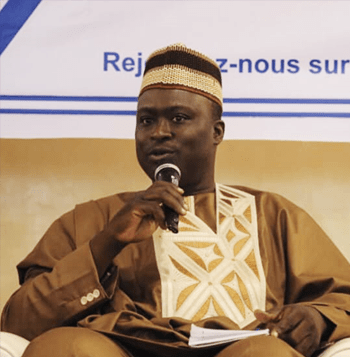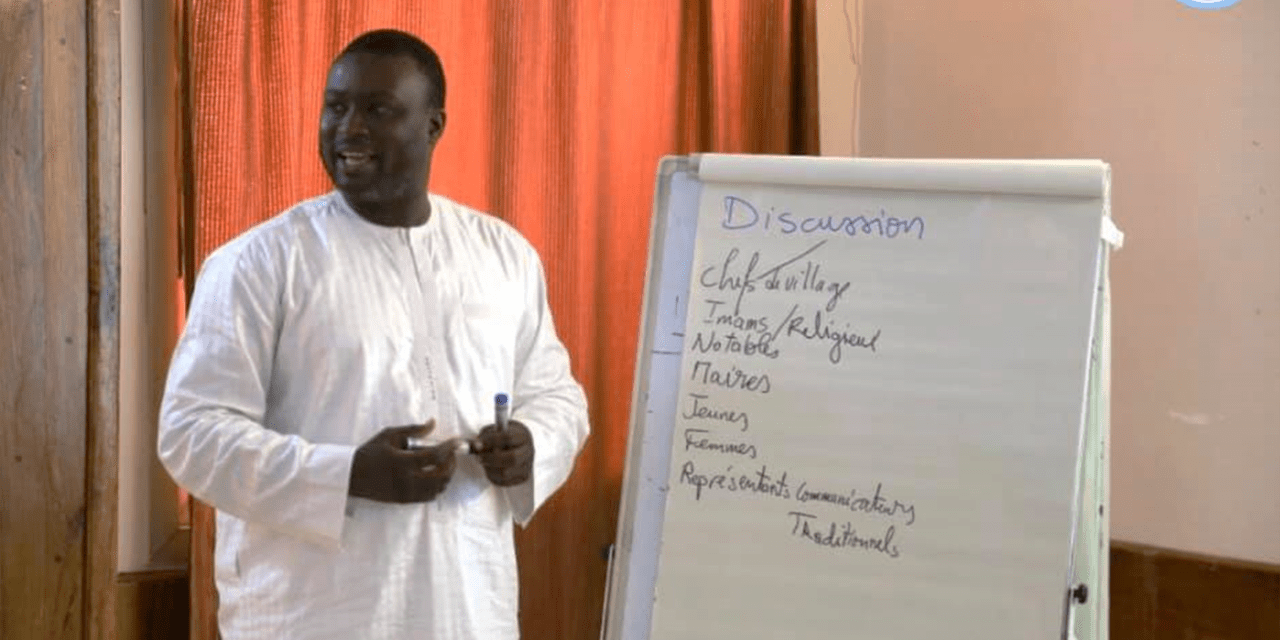
National coordinator, Think Peace MaliAbdoul Kassim Fomba
Mr. Fomba is a founding member and Coordinator of “THINK PEACE SAHEL” think tank and action group, which works on security issues, conflict management and prevention of violent extremism in Mali (Think Peace Mali), Burkina Faso (Think Peace Burkina) and Niger (Think Peace Niger).
Mr. Fomba has conducted several research studies with major contributions on themes related to the trajectory and roles of youth and women towards violence as well as the perception of young girls/boys on the conflicts affecting them and their perspectives on conflict transformation. He organizes think tanks and facilitates panels on the factors of conflict related to terrorist and armed groups.
Human rights are central to his approach and interventions. Mr. Fomba has thus oriented the priorities of the THINK PEACE organization towards the prison environment and issues related to descent-based slavery. Remarkable achievements were noted.
He initiated and co-chairs since 2019, through a strong Public-NGO collaboration with the National Directorate of Penitentiary Administration and Supervised Education (DNAPES), the very first and only joint commission on the prevention of radicalization
in prisons. This commission, which is still active, carries out unique activities in terms of classification of the degree of radicalization of suspected terrorists, socialization of inmates, capacity building and post-prison accompaniment.
Also, THINK PEACE SAHEL has developed a strong reputation among local authorities as one of the major actors in bringing a sustainable response to the phenomenon of descent-based slavery in the Kayes region. To strengthen this position, Mr. Fomba has formulated a strategy based mainly on capacity building and the conduct of activities exclusively driven by affected, involved and influential local actors such as migrants, youth/women, local authorities and traditional and religious leaders.
To complete the initiatives of peace and social cohesion in the areas of intervention of the organization, Mr. Fomba is convinced that the development of the local economy and communities remains a must. To this end, his priorities are oriented towards the mastery of the value chain and a mutual guarantee to the socio-professional activities of local communities, reducing bankruptcy rates and promoting the expansion and increase of local economic activities.


